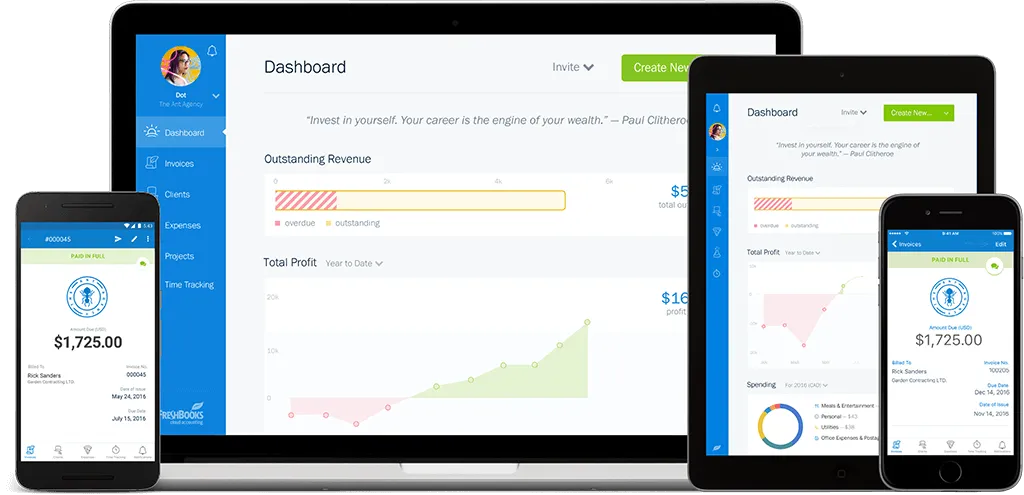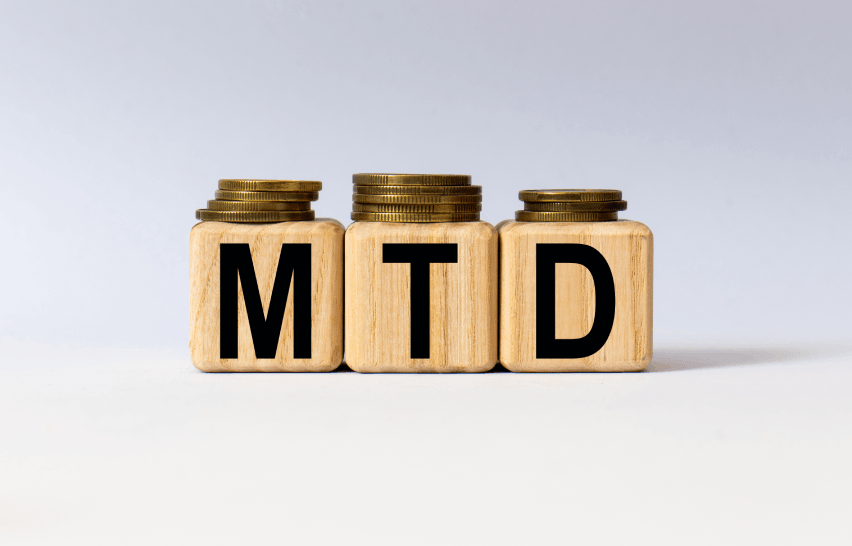MTD Digital Links: Definition & Why You Need To Use It

The HMRC’s “Making Tax Digital” imitative has been talked about since 2017 but did not enter its soft landing period until 2019. By 2022, all VAT-registered businesses were required to submit their VAT return via digital links.
It is essential for anyone, business or sole proprietor, to understand these new standards. Failing to meet MTD for VAT compliance may lead to legal and financial repercussions.
Key Takeaways
- “Making Tax Digital” for VAT means that all VAT returns must be transferred to the HMRC via digital links.
- Making Tax Digital’s soft landing period began in 2019 and continues to be rolled out.
- Failing to comply with the HMRC Making Tax Digital imitative may result in financial penalties.
- Physically giving someone a portable drive with information qualifies as a digital link, and so do spreadsheets, API transfers, XML, and CSV import and export.
- Manually transferring data or copying and pasting information do not qualify as digital links.
This article will take a closer look at Making Tax Digital links. You will learn:
Why Do Businesses Need to Use Digital Links?
Digital Links Accepted by HMRC
What is Not Considered a Digital Link?
What is MTD for VAT?
MTD for VAT (value-added tax) means that VAT-registered businesses with a taxable turnover above the current threshold must keep digital records. It also means that such companies need to submit their VAT returns via MTD.
The UK government will eventually roll out MTD beyond VAT-registered businesses. Corporate tax and income tax will be subject to MTD standards in April 2026.

What Are MTD Digital Links?
An MTD (Making Tax Digital) digital link is a data transfer between compatible software programs or devices. Transfers may be linear or nonlinear. A linear digital link sends digital records from one source to another. Whereas a non-linear transfer may see the data go back and forth as additional recapture is needed.
If you have multiple accounting software programs, you may need a digital link for each one. This is simply to ensure that all vital data is consolidated.
Check out Freshbooks’ Making Tax Digital Checklist to see if your company is MTD compliant.
Why Do Businesses Need to Use Digital Links?
The HMRC penalizes VAT-registered businesses that do not use digital links as required. Companies are subject to a £5 to £15 fine each day they fail to comply.
Non-compliance is not limited to keeping digital records offline. Companies must also meet the following standards.
- Each VAT return must be filed on functionally compatible software. Failing to do so may result in a £400 fine per improperly filed record.
- All financial software must be linked digitally.
- Every company must verify the accuracy with a checking software product before they file their VAT returns. Any company that files VAT returns with errors must pay the VAT they owe up to 100%.
- All VAT-registered companies need an MTD account. They must have a functional, compatible software tool before registration.
FreshBooks accounting software can help businesses meet their digital links requirements as it offers a simple and user-friendly way to manage your finances. FreshBooks can help businesses easily keep track of their financial transactions and ensure compliance. Click here to start your free trial with FreshBooks today.

Digital Links Accepted by HMRC
Not all online data transfer methods are accepted as digital links by the HMRC. Companies providing digital links must use one of the following methods to remain within compliance.
- Emailing a spreadsheet
- Uploading a set of digital records onto a portable device such as a memory stick, pen drive, or flash drive and physically giving this to someone else
- Linked cells within a spreadsheet
- CSV import and export
- Importing data into software XML
- Directly transferring data using an API (Application Programming Interface) tool
- Automated data transfer
- Using Excel formulas to transfer information from one spreadsheet to another
- Downloading or uploading files from a shared drive
What is Not Considered a Digital Link?
Comparatively, the following transfer methods are not considered digital links by the HMRC.
- Using the “copy and paste” function to transfer data onto a separate spreadsheet
- Manually entering information
- Handwriting financial data
The reason why these methods do not qualify is that they don’t leave a sufficient digital audit trail. These methods are also error-prone.
Digital Links Examples
To highlight how this system works, the following examples demonstrate digital linking.
- VAT information from another software tool is transferred to a spreadsheet via API.
- A consolidated spreadsheet is sent to HMRC digitally via bridging software.
- Data from a company’s POS system is transferred to a record-keeping spreadsheet via CSV import.
- Handwritten invoices are logged into an accounting system, and that data is emailed to the HMRC.
To learn more about digital linking and other aspects of Making Tax Digital (MTD), you can check out the MTD guide which we have published. It provides a detailed explanation of MTD and its implementation, including information on digital linking and how it streamlines the process of submitting VAT information to HMRC.

Conclusion
Digital links are an important part of MTD compliance. Even if you’re using a functional compatible software tool, you aren’t fully complying without digital links. You may continue to use spreadsheets and other tools as bridging software, but they must connect with the proper digital links. You can ensure seamless compliance with Making Tax Digital for VAT by leveraging FreshBooks MTD VAT software.
FAQs On MTD Digital Links
Can I still use bridging software for MTD?
You can use bridging software in your MTD process but it is not an end-to-end solution. You must use a spreadsheet or other bookkeeping tool in tandem with your bridging software to maintain compliance.
Can I use spreadsheets for MTD?
Yes. Excel spreadsheets are common and acceptable in MTD. You may use CSV exports, linked cells, and Excel formulas to create digital links.
What are API-enabled spreadsheets?
API-enabled spreadsheets let users directly transfer spreadsheet data into another tool. The API function serves as a bridge between the spreadsheet and other software programs.
How do I ensure that my business is compliant with MTD Digital Links?
Consult the official HMRC website to learn more about which tax digital software applications or transfer methods are and aren’t MTD compliant. Seek MTD-enabled tax digital software packages and download a Making Tax Digital software product.
What is MTD Software?
MTD software is any digital accounting tool that adheres to digital link compliance. FreshBooks is fully compliant with MTD standards.
Do I Need to Get MTD Software to Stay Compliant?
You may not need to download an MTD software tool if you use spreadsheets for digital linking. However, it is strongly recommended because it will make staying compliant much easier.
Are there any exceptions to the MTD Digital Links requirements?
You can request an exemption to MTD if there is just cause. Exempt individuals may file a VAT return manually. Possible reasons for MTD exemption include:
- Businesses that cannot reasonably access a secure internet connection
- If you cannot use a computer, tablet, or smartphone for the amount of time it takes to file your VAT return due to a disability
- Age may qualify under this exemption
- If using electronic devices is incompatible with your religious beliefs
You will not get an exemption because filing returns via digital link takes too long or is too difficult.
About the author
Balil Warraich is an ACCA and CPA with over ten years of experience in the financial space. He specializes in accounting, assurance, and taxation services. Balil currently resides in British Columbia, Canada, where you’ll find him at https://www.notioncpa.com/
RELATED ARTICLES


 Self-Assessment for Sole Trader: How to Prepare for MTD
Self-Assessment for Sole Trader: How to Prepare for MTD What Is Making Tax Digital: An Extensive Guide
What Is Making Tax Digital: An Extensive Guide Sign Up for Making Tax Digital for VAT: A Complete Guide
Sign Up for Making Tax Digital for VAT: A Complete Guide MTD for Income Tax: How Will It Affect You?
MTD for Income Tax: How Will It Affect You? Making Tax Digital Timeline: Key Dates You Should Know
Making Tax Digital Timeline: Key Dates You Should Know 10 Best Making Tax Digital (MTD) Software for VAT
10 Best Making Tax Digital (MTD) Software for VAT